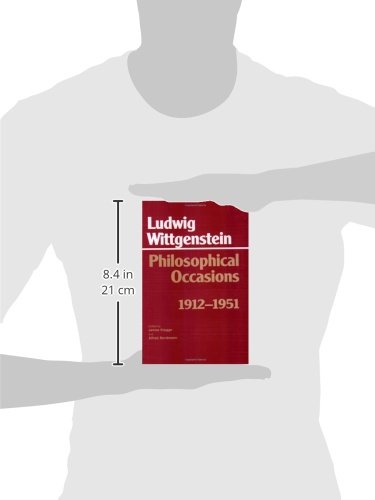Tractatus Logico-Philosophicus (Spanish Edition)
Category: ludwig wittgenstein

"Philosophy is not a theory, but an action," said the Austrian-British philosopher Ludwig Wittgenstein (1889-1951). Wittgenstein defined philosophy as the logical explanation of concepts in his 1921 work, his only published philosophical book during his lifetime, and advocated for a critical approach to the analysis of language to resolve most philosophical questions.
Wittgenstein caused a great stir in intellectual circles when he declared that philosophy was a matter of logic and not metaphysics, influencing the development of logical positivism and changing the course of 20th-century thought. Building on the foundations of symbolism and the necessary relationships between words and objects, the author extends his theories to various schools of conventional philosophy, demonstrating how errors are caused by the inappropriate use of symbols and language.
The author addresses the theory of knowledge, as well as the principles of physics and ethics, and aspects of mysticism, after examining the logical structure of propositions and the nature of logical inference. According to Bertrand Russell, Wittgenstein's achievement is "one that no serious philosopher can afford to ignore."
Biography: Ludwig Josef Johann Wittgenstein (April 26, 1889, in Vienna; April 29, 1951, in Cambridge) was a key figure in 20th-century philosophy. He made important contributions to logic, language, and the philosophy of consciousness. Logisch-philosophische Abhandlung (Tractatus Logico-Philosophicus, 1921) and Philosophische Untersuchungen (1953, posthumous) are key texts for two philosophical schools: logical positivism and the analytical philosophy of language.
Wittgenstein's early work, the Tractatus, presented a logical atomistic view of the world, in which reality was seen as a set of atomic facts that could be represented by the logical structure of language. He argued that the problems of philosophy arose from the misuse of language and that the role of philosophy was to clarify the logical structure of language and thought, thereby resolving philosophical problems. The Tractatus had a profound influence on the Vienna Circle and the development of logical positivism.
In his later work, Philosophical Investigations, Wittgenstein rejected the logical atomism of the Tractatus and developed a new approach to language and meaning, based on the idea that the meaning of a word is derived from its use in a particular language game or form of life. He argued that there is no single, universal logic or structure of language, but rather a diversity of language games, each with its own rules and conventions.
Wittgenstein's later philosophy emphasized the contextual and pragmatic nature of language, and the role of language in shaping our understanding of the world. He rejected the idea of a single, universal philosophical method and argued that philosophy should focus on the diversity of human practices and forms of life, rather than seeking to establish universal truths.
Wittgenstein's influence on 20th-century philosophy has been profound, and his work continues to be a subject of intense debate and analysis. He is widely regarded as one of the most important and influential philosophers of the 20th century.
product information:
| Attribute | Value | ||||
|---|---|---|---|---|---|
| publisher | Independently published (May 5, 2022) | ||||
| language | Spanish | ||||
| paperback | 164 pages | ||||
| isbn_13 | 979-8818459554 | ||||
| item_weight | 10.7 ounces | ||||
| dimensions | 6 x 0.42 x 9 inches | ||||
| best_sellers_rank | #2,385,140 in Books (See Top 100 in Books) #212 in Computer Programming Logic #2,013 in Philosophy of Logic & Language #124,857 in Libros en español (Special Features Stores) | ||||
| customer_reviews |
|



















